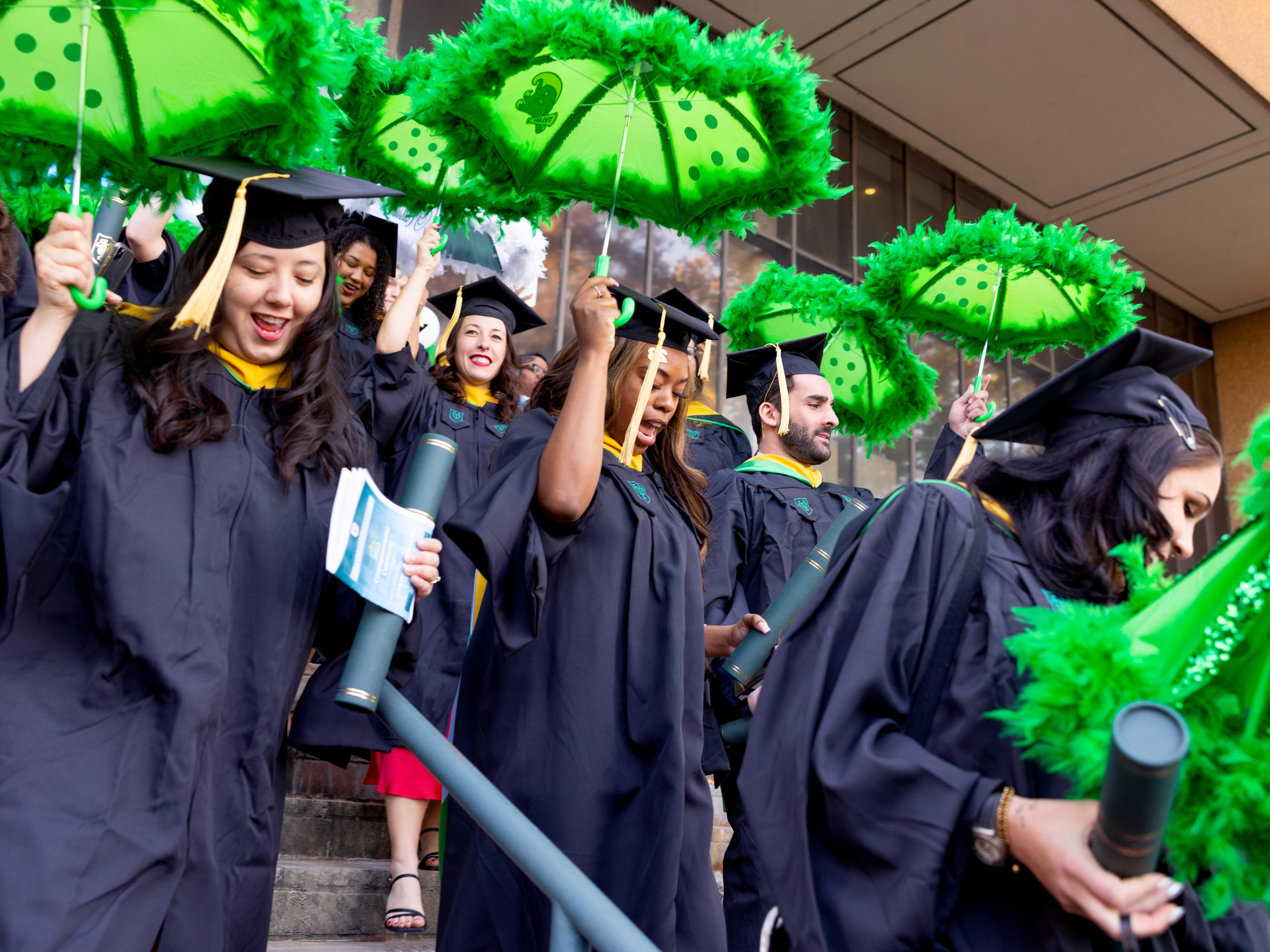Tulane social work graduates ready to impact lives
When Alaiyia Williams was pondering career options, it didn’t take her long to choose social work. From as far back as she can remember, she wanted to help people, especially those in marginalized communities.
“I’ve always been a compassionate person, and I’ve always had a heart for fighting injustices,” said Williams. “I’ve always wanted to do work that is meaningful and in service to the intersections of the communities to which I belong.”
Williams, who identifies as Black and transgender, has been a licensed clinical social worker for over a decade, working largely with diverse communities. This week, she took her career to the next level when she received her doctorate in social work from the Tulane University School of Social Work (TSSW).
Williams was among 50 TSSW students who graduated this week with their doctorate degrees. Another 150 students received master’s degrees in social work, combined with graduate degrees in public health or disaster resilience leadership. Their graduation ceremony took place at the Mahalia Jackson Theater for the Performing Arts.
TSSW Dean Patrick Bordnick said the 200 graduates are fulfilling a real need in the social work profession, and he couldn’t be more pleased with the quality of this year’s degree holders.
“There is a significant workforce shortage of social workers in the U.S. that is expected to increase over the next six to 10 years,” he said. “Social workers provide most of the clinical mental health assessment and treatment compared to other helping professions.”
He added, “The Tulane School of Social Work is proud to play a critical role in the need to educate and graduate clinical and community social workers, in order to meet the growing demands of individuals and their communities.”
Some of the factors contributing to the workforce shortage include increasing demand for social services due to population growth, aging populations, complex social issues and turnover within the profession, often due to burnout.
With her doctorate in social work, Williams plans to continue to teach at the college level and “work to inspire passion in future social work professionals,” she said.
She works largely with transgender and gender-diverse individuals, many from various racial and ethnic backgrounds. As such, she hopes to develop screening tools and curriculum that are specific to their nuanced experiences. She also plans to do research that adds to the growing body of literature on transgender and gender-diverse individuals. She credits TSSW for putting her in a position to fulfill her passion.
Tonya Hansel, an associate professor and program director of the Doctorate of Social Work (DSW), said DSW graduates such as Williams “are essentially leading the profession. They are educating future social workers. They are developing programs and evaluating their efficacy — creating evidence and equitably informed services.”
“They are administrators, policy makers and advanced practitioners,” she said. “The DSW provides materials and education that allow the master’s level practitioner to elevate their practice at a more advanced level. They are the future of our profession.”
Bethany Deairy, who received her master’s in social work, is overjoyed to be entering the profession. She plans to use the clinical experience she gained as a TSSW student — including an internship at the Youth Empowerment Project — to work as a crisis counselor at the Children’s Bureau, a nonprofit advocacy and intervention group that works to improve the quality of life of children and families in the New Orleans area.
“I have always known that I wanted to be in a helping profession,” said Deairy, who served as president of TSSW’s Student Government Association for the Class of 2023. “And that position will allow me to get clinical and community practice since I will be doing child and family therapy along with going out into the schools to do community outreach.”
Like Williams, Deairy is equally grateful to the Tulane School of Social Work for preparing her for the workforce. “I really feel like I got a well-rounded education,” she said.

